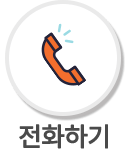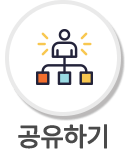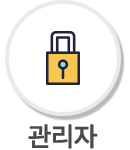The 10 Most Terrifying Things About Types Of ADHD Medication
페이지 정보
작성자 Rafael Coupp 조회 3회 작성일 24-10-02 05:33본문
 Types of ADHD Medication
Types of ADHD Medication There are a variety of medications that can be used to treat ADHD. It could take a while to find a drug that is effective for you or your child.
There are a variety of medications that can be used to treat ADHD. It could take a while to find a drug that is effective for you or your child.Drugs that stimulate the brain, such as methylphenidate, also known as Ritalin help to reduce symptoms by increasing levels of certain chemicals in the brain. Certain people who take these medications notice a dramatic decrease in energy and an "crash" as the drug is gone.
Short-acting
Drugs that regulate behavior can benefit a lot of kids with ADHD. These medications can help children to complete tasks, develop better relationships, and also learn. These drugs can also reduce distracting or annoying behaviors. Parents and doctors must work together to decide which medication is suitable for their child. Children react differently to medications, so it is important to find the appropriate medication for each child. A health care team might suggest a combination of medicines along with other treatments, such as counseling.
There are two types of medications that treat intuitive adhd medication in adolescents, children, and adults: stimulants as well as other medications. The stimulants affect brain chemicals that influence attention and impulse control. They are either short-acting (lasting a few hours) or long-acting (lasting all day). Some people experience side effects like a decrease in appetite, sleep problems, and changes in heart rate or blood pressure. Most doctors can pinpoint medications that have little or no side effects for most people.
The most common medicines used to treat ADHD are called stimulants, and they include methylphenidates and amphetamines. The Drug Enforcement Administration regulates them as Schedule II drugs because they are high-risk for misuse and abuse if they are taken not as prescribed. Examples of methylphenidates are Ritalin and Concerta as well as Adderall and Dexedrine are examples of amphetamines. These medicines can have serious health problems if not taken as prescribed which is why it's crucial to talk to your doctor prior to starting them.
Children younger than 6 years should not be treated with stimulants. Some children may require a different drug, or a lower dosage. Before prescribing medication your doctor will look for any other conditions that could be the cause of the symptoms in your child. They will ask about your child's symptoms, habits, and family history. They will also perform an examination to determine if there are any problems with hearing or vision. They might also inquire about your child's diet or sleep habits. They'll be looking to determine if your child has allergies. The doctor will then issue the prescription and instructions on how to take it. You should visit your doctor frequently to determine whether the medicine is helping.
Long-acting
Similar to a pair of glasses that can sharpen vision and improve clarity, ADHD medications can help your brain focus. They increase levels of chemicals that are essential for attention and focus. The two main types of medication are stimulants (e.g. amphetamines, amphetamines or methylphenidates) and non-stimulant medications.
Long- and short-acting stimulant meds are offered to people suffering from ADHD. They are effective in 70-80% of cases. Long-acting ADHD meds work in a series of phases, with a portion of the dose being released shortly after taking a pill in the morning and the rest released throughout the day. They are easier to remember, decrease the number pills you need to take every day and deliver a consistent dose of medication when as compared to shorter-acting medication. They also have fewer side-effects and "ups & downs" when compared to short-acting drugs.
Non-stimulant
Medications ease ADHD symptoms for 70 percent to 80% of children and adults, enhancing their ability to concentrate and control their impulsivity. They also help improve their school performance as well as social skills. In fact, medication is the first option for many people with ADHD. The medication can be utilized in combination with other treatments, like behavior therapy.
Stimulant medications, such as Ritalin or Adderall, increase the levels of the neurotransmitter hormones dopamine and norepinephrine in the brain. This improves the effectiveness of messages that are sent between nerves that help people focus and control their impulsivity. Stimulant medications are available in immediate-release, extended-release or long-acting tablets. The most popular stimulants are Ritalin Concerta Adderall Vyvanse. The instant-release form, which is administered in small doses throughout the day to provide fast symptom relief, is typically taken in smaller dosages. The longer-acting and extended-release forms are usually taken only once a day and offer prolonged symptom control.
The Food and Drug Administration has approved a variety of nonstimulant medications to treat ADHD. The most frequently prescribed nonstimulant best medication for inattentive adhd is Atomoxetine (Strattera). Qelbree is a newer medication. These medications don't contain amphetamine, methylphenidate or controlled substances. They are less likely to be a source of abuse since they're not controlled.
Other nonstimulant medications include Guanfacine and Clonidine. These are more likely to be prescribed to people who have a combination of ADHD and Tourette syndrome. They take several weeks to start working and reduce tics and anxiety. These medications can increase blood pressure and heart rate.
The medications are not always effective or well tolerated. The first medication one takes to treat ADHD may not be the most effective or cause unpleasant or intolerable adverse effects. The doctor can assist by altering the dosage or switching to a different best medication for adhd combined type.
Tell your doctor about all medications, including supplements and over-the-counter medications. This information is used to avoid interactions between different medications. It is also essential to let your healthcare provider know of any changes in mood or behavior that might indicate a problem with the medication.








